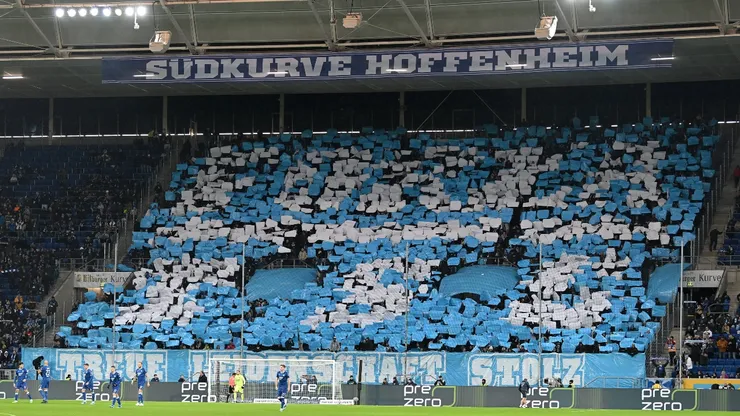
Hoffenheim is no longer one of three Bundesliga teams exempt from the ‘50+1’ ownership regulations. The club’s fans are now back in the majority.
Normally, no entity in German professional soccer may hold more than half of a club. However, because of their lengthy histories with their respective owners, Hoffenheim, Bayer Leverkusen, and Wolfsburg had exceptions to this rule.
However, Hopp chose to step down as Hoffenheim owner after an investigation by the authorities and continual harassment from rival supporters. The 83-year-old is a millionaire who established the software company SAP.
Thanks to him, the team climbed from the fifth division to the Bundesliga, where they have remained since 2008. Under Julian Nagelsmann, who is currently the coach of Germany, they even managed to achieve the remarkable feat of qualifying for the 2018 UEFA Champions League.
According to a club statement released on Wednesday, the German Football League (DFL) and the tax office have both recognized the club’s revised shareholder agreement.
Great fan culture, cheap tickets, top-notch performance, and high average attendance are just a few of the reasons why German soccer is so popular. A key element in this is the so-called ’50+1′ ownership rule.
What is ’50+1′ rule?
According to a long-standing regulation in the Bundesliga, the team association must own one share in addition to fifty percent of a club. The requirement that clubs’ members possess fifty percent plus one additional vote—i.e., a majority—is reflected in the rule’s name.
In a nutshell, it implies that local clubs, and by implication, their supporters, rather than an outside force or investor, have the last say in club management.
More and more money is flowing into European soccer, however, and that is a challenging tradition. One goal of the’ 50+1’ rule is to stop what is happening in English soccer, where wealthy Saudis and Americans finance teams with little to no input from the public.
When foreign investors have the most say, German soccer teams cannot participate in the Bundesliga or the German second-tier league according to DFL regulations.
This rules out the possibility of corporate or commercial investors acquiring teams and putting profit before fan preferences. The decision defends the democratic traditions of German clubs while also shielding them against careless owners.
Until 1998, private ownership was forbidden in Germany, and teams were instead administered by members’ groups as non-profit organizations. That year saw the introduction of the ‘50+1’ rule. This rule explains why the Bundesliga controls levels of debts and salaries. Also, this rule contributes to the cheap ticket pricing as compared to other major European leagues.
Which Bundesliga clubs are currently exempt from ’50+1′ rule?
The manner in which clubs adjusted to these developments varied. The forms members took ownership of the groups also varied. A large number of the Bundesliga clubs are really subsidiaries of larger clubs that manage the first team. This makes them legally similar to limited or joint-stock companies.
After looking over the regulation, the German Cartel Office requested revisions from the DFL. Leverkusen and Wolfsburg earn special treatment in the future. No other teams will be able to apply for this.
The regulation has long been a source of frustration for Bayern Munich. They have argued that it prevents them from competing on par with clubs like Manchester City, controlled by Abu Dhabi.
PHOTOS: IMAGO.
200+ Channels & Local Sports
- Price: Plans starting at $14.99/mo (Latino)
- Watch Ligue 1, Copa Libertadores & World Cup Qualifiers
Every MLS Match in One Place
- Price: $12.99/mo (Now included with standard subscription)
- Watch every MLS regular season game, Playoffs & Leagues Cup
Many Sports & ESPN Originals
- Price: $11.99/mo (or ESPN Unlimited for $29.99/mo)
- Features LaLiga, Bundesliga, FA Cup & NWSL
2,000+ Soccer Games Per Year
- Price: Starting at $8.99/mo
- Features Champions League, Serie A & Europa League
Home of the Premier League
- Price: Starting at $10.99/mo
- 175+ Exclusive EPL matches per season